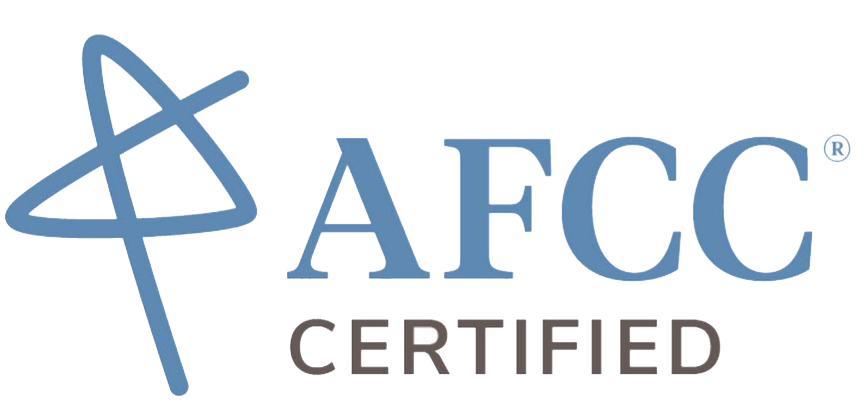
Is the Orderly Payment of Debts Program Right for You?
Are you feeling overwhelmed by debt? You’re not alone. Many Albertans face similar challenges every day, but there’s a light at the end of the tunnel. The Orderly Payment of Debts (OPD) program, offered exclusively by Money Mentors in Alberta, is a beacon of hope for those struggling with multiple debts. Working with an unbiased, AFCC certified credit counsellor, the OPD program Alberta will allow you to consolidate your debts into a single, manageable payment plan.

All credit counsellors at Money Mentors must have the Accredited Financial Counsellor Canada (AFCC) certification. This ensures financial practitioner expertise in the financial counselling industry while abiding by the Professional Code of Ethics and Standards.
At Money Mentors, we’ve seen lives transformed. Teresa’s story, for instance, is one of sheer determination. She faced a massive $106,000 debt as a result of credit card dependency and impulsive spending. With the help of her Money Mentors’ counsellor and the OPD program, she managed to break free from this cycle. Her journey involved tough decisions, like cutting out impulse shopping, and led to a fulfilling outcome of being debt-free and rebuilding her credit.
Then there’s Robert, a single parent who juggled over $42,000 in debts while raising his child. His commitment to the OPD program, combined with a willingness to learn and change his financial habits, not only cleared his debt but also taught him how to use credit responsibly. This journey has set a solid financial foundation for his family’s future.
These are just two of the many success stories at Money Mentors. They showcase the transformative power of the OPD program, which is not just about debt consolidation, but about regaining hope, control, and confidence in your financial future.
However, OPD isn’t a one-size-fits-all solution. It’s a powerful tool for certain financial situations, but other options like Consumer Proposals and Bankruptcy might be more suitable for others. When deciding how to tackle your debt, consultation with a credit counsellor is vital. They offer personalized advice, considering your unique financial scenario, and guide you in choosing between OPD and other suitable debt solutions.
In this article, we will explore when the OPD program could be the right choice for you, and when other debt relief options might be more suitable for your unique financial situation.
OK, let’s dive in, and explore all the possibilities to help you find the path that leads you back to a time when you didn’t constantly stress about money.
When to Consider the OPD Program to Manage Debt
The OPD program can be a valuable tool for managing financial burdens under the right circumstances. Let’s look at each situation where considering OPD is advisable, with some examples for clarity:
- You’re Trapped in Interest-Only Payments
- You’re Behind on Credit Payments and are not Eligible for Loans
- You Own Non-Exempt Assets Valued Higher Than Your Debt
- You Live in an Eligible Province
- You Want to Repay Your Debts
- You Want to Take Advantage of the Low Interest Rate
- You Have Enough Income to Make Payments
When your financial situation has led to maxed-out credit accounts, or unmanageable payday loans, and you find yourself stuck paying only the interest without reducing the principal, OPD can be a game-changer. For instance, consider Damien, who repaid payday loans of $4,400 to live debt-free. Even though he could pay the minimum, he felt like the interest was “keeping him stuck in the same spot”. The OPD program lowered interest to 5% and restructured his payments helping him break this debt cycle.
If you’ve missed several credit payments and find yourself disqualified from consolidation loans, OPD legally changes the payment terms of your debt to offer a structured way forward. Take the case of Chris, who started missing monthly payments. When we spoke to Chris for our Success Stories, he said he called Money Mentors when, “ certain minimum payments got missed, and then the phone started ringing.” For Chris, the structured path to manage and eventually clear his debts was life-changing.
OPD is an excellent option if you possess assets whose value exceeds your debt but don’t want to risk losing them in bankruptcy. We put together a helpful infographic on what assets are exempt from bankruptcy. Unlike bankruptcy, you keep all assets while on the OPD program.
Remember, OPD is not a nationwide program. It’s specifically only available in Alberta. This means residents of Alberta, like Melissa who moved to Calgary from BC, have this unique debt management option at their disposal, unlike those in other provinces.
OPD is ideal for those who feel an ethical desire to repay their debts in full. People like Chris, linked above in number 2, who, despite facing financial challenges, want to pay back the money they borrowed. OPD provides a feasible plan for individuals like Chris who have the means and want to pay back their debts.
With a fixed interest rate of 5%, OPD can significantly reduce the financial burden for those dealing with high-interest debts. For instance, by completing the OPD program, Floyd benefited from a lower, more manageable rate during a time of rising interest rates, reducing the overall cost of his debts and freeing up more cash for living expenses.
The OPD program’s 5-year repayment period is particularly suitable for individuals with enough income to make the payments. Regardless if you have a stable income, roller coaster income or seasonal income, OPD could be an option. For people like Kim, the budgeting help included on the OPD program means that they can actually save for retirement as well as paying off debts.
In each of these scenarios, OPD offers a structured and often more manageable path to financial freedom, tailored to specific financial situations and needs.
When OPD Might Not be the Right Fit
While the OPD program may be beneficial for many, there are certain scenarios when it may not be the best option. However, everyone’s situation is unique and it’s always best to speak to one of our unbiased, non-profit credit counsellors before making a decision. Let’s explore some scenarios when OPD might not be right for you:
- Your Budget is as Stretched as Possible
- You Don’t Live in an Eligible Province
- You are Already in a Debt Repayment Program (and Have Not Been Discharged)
- You Have the Capability to Self-Manage Your Debt
When your budget is already trimmed to the essentials, not counting debt payments, and there’s little room for further cuts, OPD might not be viable. Let’s say your income just covers your basic needs like housing, food, and utilities, without any discretionary spending. In this case OPD payments might be unaffordable, as there’s no additional spending to cut back on.
Given that the OPD program is exclusive to Alberta, it is not an option for residents of other provinces. For example, someone residing in Ontario would have to consider alternative debt management options.
Individuals who are currently in a debt management program like a consumer proposal or who are undischarged from bankruptcy are ineligible for the OPD program. In such cases, completing the bankruptcy or the consumer proposal process are necessary first steps.
If you can effectively manage your debt by transferring balances to lower-interest products or by following disciplined debt repayment strategies, OPD might not be necessary.
In each of these cases, the specific circumstances and financial profiles of the individuals play a crucial role in determining whether OPD is the best course of action.
How to Know if OPD is Right for You
Determining if the OPD program aligns with your financial situation involves a thorough evaluation of several factors:
Income, Assets, and Family Size
The viability of the OPD program for an individual is largely influenced by three key factors: income, assets, and family size. The level of your income, coupled with the nature and total value of your assets, plays a crucial role in determining if the OPD program is a suitable option for you. Additionally, the size of your family is an important consideration, as it can significantly impact your financial situation and the feasibility of enrolling in the OPD program. These factors collectively help in assessing whether the program aligns with your financial situation.
Common Scenarios
- Asset Retention: If you’re keen on keeping your house, vehicles, and other secured assets while managing your debt, especially when your bank is unwilling to help with consolidation, OPD could be suitable.
- Planning for Retirement: For those managing minimum payments but unable to reduce debt due to high interest, especially with retirement on the horizon in the next 5-10 years, OPD can provide a structured payoff plan.
- High Income in Inflationary Times: If you have a good income but are struggling with debts taken from high-interest lenders, particularly those incurred during challenging periods like the COVID-19 pandemic, and find managing life difficult due to inflation, OPD can offer a manageable repayment framework.
Is the OPD Program Right For You?
Deciding if the OPD program is the right choice for you marks the beginning of a significant journey towards financial independence. Although this path doesn’t offer instant rewards, the long-term benefits of such a structured debt management approach are substantial and transformative. Engaging in the OPD program is not just about settling debts; it’s a step toward overcoming the stigma of debt repayment and achieving the commendable goal of repaying your creditors in full.
The advantages of the OPD program are numerous and tailored to offer you the support you need:
- Extensive Support: The program provides you with ongoing, comprehensive assistance from experienced, unbiased credit counsellors. These experts are available for consultations, both in person and online, ensuring you have support at every turn in your financial journey.
- Full Debt Repayment: OPD stands out by ensuring all your debts are repaid, offering a more fulfilling and responsible approach to financial management compared to other debt relief options.
- Affordability and Accessibility: The absence of startup fees makes OPD an accessible choice for many, removing an initial financial barrier to entry.
- Fixed 5% Interest Rate: The program offers a stable and low interest rate, making your financial planning more predictable and manageable.
- Federally Legislated Protections: As a program backed by federal legislation, it provides a structured and secure approach to debt management.
- Cessation of Collection Calls and Wage Garnishments: Once enrolled, you gain immediate relief from creditor actions, including halting collection calls and wage garnishments.
- Consolidation of Unsecured Debts: The program consolidates all your unsecured debts into one manageable plan.
- Educational Benefits: Enrolling in the OPD program gives you access to free financial seminars and courses, equipping you with improved money management skills for the future.
Remember, embarking on the OPD program is more than a strategy to clear debts; it’s a journey towards establishing a stable and secure financial future. Taking this first step is admirable, and with the right guidance and support, achieving a debt-free life is not just a dream but a realistic goal within your reach. Give us a call today and book a free consultation.
Have questions?
Need more information or want to talk to an accredited financial counsellor for peace of mind? Let us help.
Call 1-888-294-0076 or book an appointment. It’s free for all Albertans.








